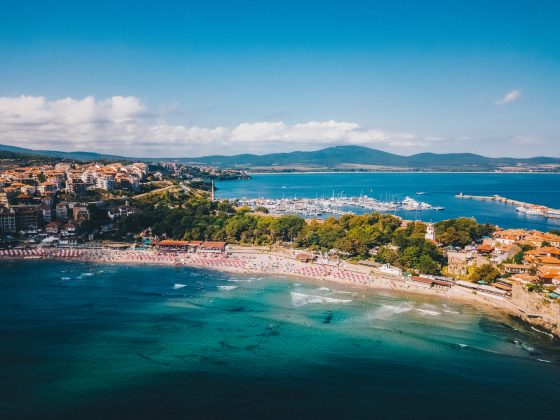Working Abroad in Germany
Germany is slightly unique from many other countries in Europe in that it doesn’t have specific residency permits for studying, living, retiring, or working abroad in the country. Expats looking to work in Germany will have to apply for a temporary German residency permit (good for one year, renewable annually) which is only approved once you can prove the reason for your intended stay (working, studying, etc.). The main approved methods for securing a residence permit to work abroad in Germany include:
General Employment
In order to be granted a residence permit with the right to work abroad in Germany for general employment purposes (not “highly skilled,” see below), your employer must show that the position could not have been filled by a worker from the European Union, European Economic Area, or Switzerland at the time of your hire. You will have to show evidence of qualifications and employment contract. This permit lasts one year and is renewable annually as long as employment continues. After five years under this temporary form of residency, you can apply for permanent German residence.
Self-Employment
If you want to start a business in Germany, you can gain a temporary residence permit that lasts for three years, renewable as long as the business is profitable. If you are a freelancer working in science and engineering, arts, teaching, professional writing, or offer a service like a doctor or lawyer, you can apply for a residence permit so long as you can prove:
- There’s a need for your service in the country.
- You have proper qualifications (recognized in Germany) to perform your services.
- That you have sufficient funds or income to finance and support yourself.
Highly Skilled Workers
If you have employment or a job offer that the government deems highly specialized and lucrative (making at least €84,600 per year), you can apply for a fast-tracked settlement permit, without having to annually renew the 5-year temporary residency requirements of the standard residence permit. Qualified applicants can then obtain an EU Blue Card.
EU Blue Card
The EU Blue Card is a residence option (valid for 4 years) in Germany for those who the government deems as highly skilled, and whose careers are viewed as exceptionally valuable for the country.
With the EU Blue Card, you can achieve permanent residency after 33 months (less if you pass a German language test), you can live outside of Germany for up to a year without the card expiring, move to another EU state for highly qualified work after 18 months without the need for a visa, and family members can join you in the country and can work in Germany immediately (without needing to pass a language test).
Working Landscape
Germany is one of the world’s most productive countries (consistently ranking in the top ten) – despite averaging only around 1,371 working hours per year (26 hours a week), the lowest in the world according to the Organisation for Economic
Co-operation and Development. Work days often end around 4 p.m., with an emphasis on efficiency and minimal socializing. The minimum requirement for paid vacation is 20 days (30 is average) and there are around 13 public holidays.
The German business etiquette is on the formal side, compared to neighboring countries. Management style in Germany is typically hierarchical, with an emphasis on order and planning. Unlike in many other countries in the EU, punctuality is absolutely mandatory, so don’t be late for meetings!
One of the best things about working abroad in Germany is the pay. Salaries in the country are among the highest in the world. Most entry-level positions for university graduates start at around €30,000 per year, with student or non-degree-holding work paying up to €15 an hour.
Note: Income taxes while working in Germany can be up to 50% of your gross salary, depending on your line of work. When discussing job contracts, salaries are usually presented in gross income, so always be aware of the tax regulations in your specific circumstance.
Job Market Facts
- Unemployment: 5.6%
- GDP by sector: Services (69.1%), Industry (30.2%), Agriculture (0.7%)
- Labor Force: 44.2 million
- Average Gross Salary: €44,400 ($52,200)
- Average Net Salary: €27,100 ($31,800)
I hope you enjoyed reading: Working Abroad in Germany. Here are a few additional articles on Germany that I’m pretty sure you’ll love:
What You Need To Know To Move To Germany
Where are Expats Living in Germany?
Germany’s Investment Visa Program
Author Bio:
Tyler Sorce is an American writer and digital nomad currently living in Lisbon, Portugal. In a past life he was a chef in Manhattan and Paris, follow his travels and favorite dishes on Instagram.
Contact Author
"*" indicates required fields
Stay Ahead on Every Adventure!
Stay updated with the World News on Escape Artist. Get all the travel news, international destinations, expat living, moving abroad, Lifestyle Tips, and digital nomad opportunities. Your next journey starts here—don’t miss a moment! Subscribe Now!










